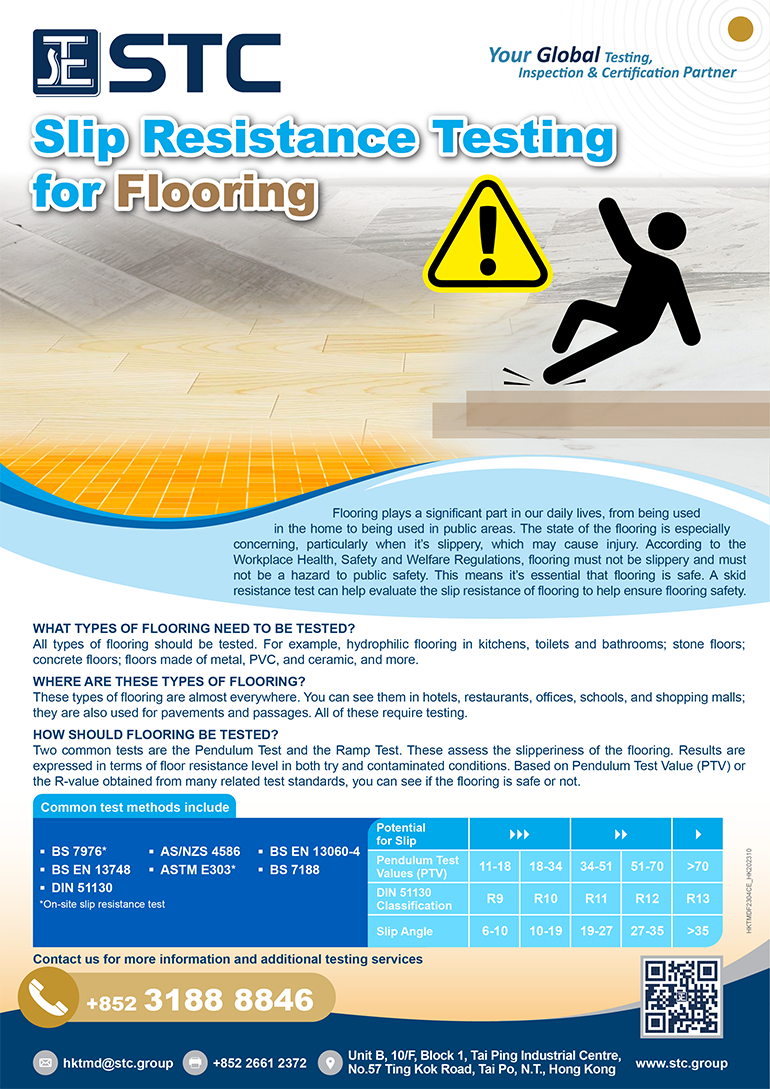
Slip Resistance Testing for Flooring
Flooring plays a significant part in our daily lives, from being used in the home to being used in public areas. The state of the flooring is especially concerning, particularly when it’s slippery, which may cause injury. According to the Workplace Health, Safety and Welfare Regulations, flooring must not be slippery and must not be a hazard to public safety. This means it’s essential that flooring is safe. A skid resistance test can help evaluate the slip resistance of flooring to help ensure flooring safety.
WHAT TYPES OF FLOORING NEED TO BE TESTED?
All types of flooring should be tested. For example, hydrophilic flooring in kitchens, toilets and bathrooms; stone floors; concrete floors; floors made of metal, PVC, and ceramic, and more.
WHERE ARE THESE TYPES OF FLOORING?
These types of flooring are almost everywhere. You can see them in hotels, restaurants, offices, schools, and shopping malls; they are also used for pavements and passages. All of these require testing.
HOW SHOULD FLOORING BE TESTED?
Two common tests are the Pendulum Test and the Ramp Test. These assess the slipperiness of the flooring. Results are expressed in terms of floor resistance level in both try and contaminated conditions. Based on Pendulum Test Value (PTV) or the R-value obtained from many related test standards, you can see if the flooring is safe or not. Common test methods include:
- BS 7976*
- DIN 51130
- ASTM E303*
- BS EN 1097-B
- BS 7044
- AS/NZS 4586
- BS EN 13036
- BS 7188
- BS EN 13748
- BS EN 13893
- BS 6077
- BS 8204
*On-site slip resistance test
POTENTIAL FOR SLIP >>> >> >
Pendulum Test Values (PTV) 11 – 18 18 – 34 34 – 51 51 - 70 >70
DIN 51130 Classification R9 R10 R11 R12 R13
Slip Angle 6 – 10 10 – 19 19 – 27 27 – 35 >35
CONTACT US FOR MORE INFORMATION AND ADDITIONAL TESTING SERVICES










